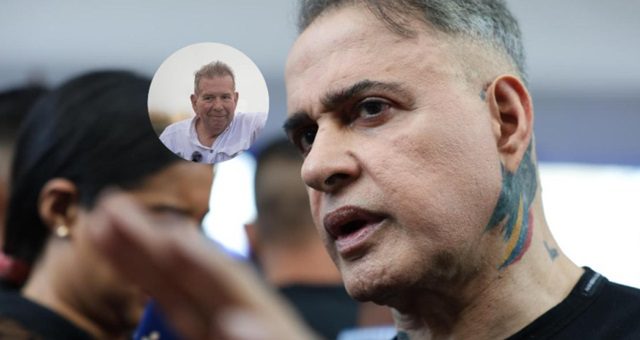BTN News: Edmundo González Urrutia, a prominent opposition leader in Venezuela, has been granted political asylum in Spain after receiving a safe passage from Nicolás Maduro’s government. This move follows a period of heightened political tension, with González Urrutia claiming that he faced persecution after disputing the results of the July 28 presidential elections. The Venezuelan government, led by President Maduro, agreed to the safe passage after negotiations with Spain, allowing González Urrutia to leave the country under the protection of international asylum rights. The situation reflects the ongoing political crisis in Venezuela, highlighting conflicts between government authorities and opposition figures.
Venezuela Grants Safe Passage to Opposition Leader
In a surprise move, Venezuela’s government, led by President Nicolás Maduro, has allowed opposition leader Edmundo González Urrutia to leave the country under a safe passage agreement. The decision, which was announced by Vice President Delcy Rodríguez, follows González Urrutia’s request for political asylum in Spain, where he arrived on September 8.
“Respect for Asylum Rights”: Venezuela’s Government Stance
Tarek William Saab, Venezuela’s Attorney General, emphasized that the Ministry of Public Prosecutions fully respects the government’s decision to grant asylum to González Urrutia. During a televised statement, Saab stated, “This Ministry expresses absolute respect for the executive decisions ensuring asylum rights, as guaranteed by our Constitution.”
The safe passage agreement was reached following discussions between the governments of Spain and Venezuela. According to Saab, the agreement reflects Venezuela’s commitment to peace and political stability.
González Urrutia’s Flight from Venezuela: A Journey Through Tensions
González Urrutia, a vocal critic of the Maduro administration, found himself at the center of controversy after the July 28 presidential election. While the National Electoral Council (CNE) declared Maduro the winner, González Urrutia and his supporters contested the results, claiming he had won with 83.5% of the vote based on evidence gathered from electoral witnesses.
Following his claims of electoral fraud, González Urrutia faced multiple charges, including “usurpation of functions” and “forgery of public documents.” Despite being summoned to court three times, he did not appear, prompting a Venezuelan tribunal to issue an arrest warrant.
Seeking Refuge in Embassies and a Safe Passage to Spain
To avoid arrest, González Urrutia initially sought refuge in the Embassy of the Netherlands before moving to the Spanish Embassy in Caracas. For over a month, he remained in diplomatic protection, until a deal was struck allowing him to safely exit Venezuela. On September 5, he finally left the country, arriving in Madrid three days later.
In a voice message shared by his coalition, the Platforma Unitaria Democrática (PUD), González Urrutia described his departure as fraught with “pressures, coercion, and threats,” but reiterated his commitment to “continue the struggle for freedom and the restoration of democracy in Venezuela.”
A Broader Political Implication for Venezuela’s Opposition
González Urrutia’s departure from Venezuela has broader implications for the country’s opposition movement. Opposition leader María Corina Machado declared solidarity with González Urrutia, stating, “Edmundo will fight from abroad alongside our diaspora, and I will continue to fight here, alongside all of you.”
Machado’s statement underscores the deep divisions within Venezuela’s political landscape, where opposition leaders face increasing pressure and scrutiny from the government.
Why the Safe Passage? A Move Toward Political Stability or a Tactical Maneuver?
The Venezuelan government’s decision to grant safe passage to González Urrutia has been framed as a gesture to ensure “tranquility and political peace.” Analysts, however, suggest it could also be a tactical move to defuse tensions and improve international relations, particularly with European nations like Spain.
As Venezuela navigates this complex political environment, questions remain about the future of the opposition and how this gesture will impact the broader struggle for democracy in the country.


